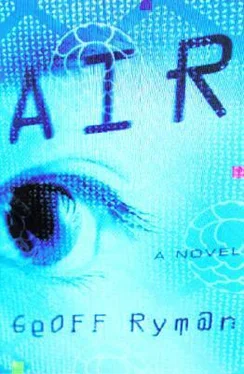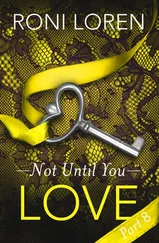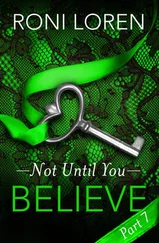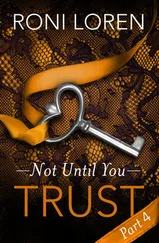Also, though Mae did not say so, to write the answers down and read them later.
Kai-hui did not know what to think, coming fresh from floors, the battle against mud, and the trial of boiled socks. 'We are very flattered that you think of my daughter for such an unusual activity,' she said. 'I must confess, I do not understand. Are you offering her a position?'
'Not yet,' admitted Mae. 'I am not yet sure I have a business. People might tell me, "Don't bother, no one wants your fashion." But if I do, then I will need a bright young Talent.'
An's eyes glistened. Oh, she understood, the young one. She could smell the new world, she knew the fragrance of it.
Kai-hui said, 'That is very interesting. But we are talking about time. And my daughter is needed in work here.'
It would not be polite to say: Your daughter will have to leave you one way or another – by marriage or by work. It was not polite, but perhaps politeness had died, too.
So Mae said it. 'An will not always be with you. And like all of us, she faces choices. One choice is to cling to old ways. And end up boiling her husband's underwear. Or, she can use her way with words and her beauty in a new way. A way that will bring cash and not labour into your house.'
An was trying to fight down a smile. Her cheeks clenched, and she was not daring to look at either her mother or Mae.
'May I see the questions?' asked Kai-hui. Her eyes were hard with the mild insult, pained at the truth, and alert.
With a flourish, Mae produced her Question Map. An could not suppress a cry of surprised admiration.
Mae had spoken the questions to Kwan's TV and the TV had printed it out all in lines. It looked like something from the government.
Kai-hui might be stuck boiling socks, but she could read. As she read, she began to look wistful. 'These are indeed questions that need to be asked. I am concerned about modesty. These questions are to be asked of men as well?'
'Mother!' An blurted out, and pulled herself in.
'Indeed, yes,' said Mae, shyly herself. 'The men run the village, and so must be asked. That is one reason why I myself need an assistant, so that there is no misinterpretation. We will always present ourselves together.'
Kai-hui's eyes said something else: You are no longer a model of propriety. 'As long as you do not go armed,' she said. An did not move. 'We will consider the offer, its good and bad points.'
Mae bowed as she sat. When she stood to go, An got up and took her arm, and said, 'I will escort our guest.' Her mother decided to relent.
At the courtyard gate, An said fiercely, quickly, 'No matter what she says, I will help you.'
There was no need for rebellion. Kai-hui said yes.
The next day, Mae and An went to work.
Mae had decided that it would flatter people if she made an appointment to see them. It would get them thinking, and it would establish her claim to have done it first. Her secretary, as she called An, wrote a letter to all thirty-four households, asking for a convenient time to visit.
That night, when Mae sat down to consult the TV, Kwan came running down the steps of her four-farm house. She kissed her.
'Mae,' Kwan said, 'you clever, clever lady! Why did you not tell of such a brilliant plan?'
'I felt it might seem stupid,' Mae lied. 'It was unformed, I had no idea what the response would be.'
'But it is just the thing!' exclaimed Kwan, eyes bright and full of pain.
'Oh! It is to help me with my fashion business.'
'It is more than that! It asks us to think about the future,' said Kwan. 'Do you need any help?'
'Oh! You are so kind. No, I have An, Han Kai-hui's daughter, as my secretary. If it works out, she can join me in the business.'
'Ah,' said Kwan. 'Yes, of course. You have that terrible loan to repay.' She paused. 'Our offer of help is always open to you.'
Mae's inner heart groaned. This was difficult. How could she say: you are kind, and a good friend, but I believe you are smarter than I am and would take over my project, make it yours? How can I say that the part of you that hungers needs to take my project over and make it yours?
Mae replied, 'I may have to take up the offer, indeed. You are so good, such a kind heart.'
Kwan's smile did not change, just her eyes. 'What value is that, in the new world?'
Against her own instructions, Mae had spent some of Sunni's-man's loan on pens and paper and a clipboard for An to write with. This made her feel bad. Her new image made her feel good.
An did not have to be told how to dress. She also wore a jacket of her father's, and suddenly, proudly, wore the big spectacles she had always tried to hide. She looked like a newsreader.
They worked in the evenings, after supper. Their first appointment was with Tsang and her husband Mr Muhammed. The village children lined up outside their gate to watch the arrivals of the Talents.
'Ask her about Kwan's son,' one of the boys bellowed like a bullfrog, to squeals of delight and harsh, unkind laughter.
Tsang had put on her best clothes and made tea, and curtained off the room full of corncobs. Her husband Hasan was a most devout Muslim who wore a black robe and had a copy of the Book ready.
Mae explained her two purposes. She phrased it this way: To ask the man of the house about the coming of Air, and to ask the woman about fashion. But either could speak at any time. Any questions they did not wish to answer were fine. Had they any views about the coming of Air?
'Indeed,' said Mr Muhammed. And spoke for twenty-five solid minutes.
The religion of Peace has always been a friend to science. When the West descended into a dark age, it was Peace that kept alive the teachings of Aristotle and Plato. Peace had no difficulty reconciling God and mathematics, the spirit and the solid world of physical laws.
An nodded and wrote down the odd phrase. Mae said. 'Ah!' and 'Oh!' at each fresh insight and felt her heart dragged down.
Mr Muhammed paused to sip tea. He was all lean neatness, with thin lips going purple with age, and thin fingers. His head was wrapped in white like a bandaged wound that needed to be kept clean.
When she asked her second question – what he felt about the Test -he simply repeated what he had said before. But he added that all information was nothing compared to the word of God. And that if the Air became a channel of godlessness, then it would be a great evil, to be rooted out.
But how had he reacted, what did he himself experience? Mae was surprised. She really wanted to know.
Mr Muhammed denied Air had any effect. It was interesting to see the Beijing opera. But it should not be allowed to drive out the Book.
Tsang, plump, cheerful, and slovenly, agreed with her tidy husband. Everything he said, that was her view. Pressed to say what her activities were, she listed cleaning, cooking, and fieldwork. Fashion – oh, a married woman such as herself needed no fashion.
An's and Mae's eyes caught each other.
They bowed, professed delight, and congratulated Mr Muhammed on his contribution. He seemed pleased and guided them to the door.
'If you need any help, Mrs Chung-ma'am, help teaching the children about this new thing – then come to me. To speak frankly, you have a great enemy. Tuh.' He cast his head back up the hill. 'That animal-worshipping Eloi.'
Mae didn't understand. 'I am sorry, I am just a wife, I do not know who you mean.'
Mr Muhammed's eyes softened, moved by the incompetence and innocence of a woman.
'Teacher Shen,' said Mr Muhammed, gently. 'He hates it. He is very angry with you for what you are doing.'
'What am I doing?' Mae asked.
'Causing trouble,' said Mr Muhammed, still smiling.
Across the bridge from Mr Muhammed was the vast household of Old Mr Doh.
Читать дальше












